目次
ゾラの文学観を知るならこの1冊!『〈ゾラ・セレクション〉第8巻 文学論集1865-1896』
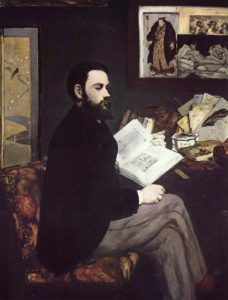
エミール・ゾラ(1840-1902) Wikipediaより
今回ご紹介するのは2007年に藤原書店より発行された佐藤正年編訳『〈ゾラ・セレクション〉第8巻 文学論集1865-1896』です。
資本主義社会に生きる人間の矛盾を描き尽した巨人
「実験小説論」だけを根拠にゾラの文学理論を裁断してきた紋切り型の文学史を一新、ゾラの幅広く奥深い文学観を呈示!「個性的な表現」「文学における金銭」「淫らな文学」「文学における道徳性について」「小説家の権利」「バルザック」「スタンダール」他。
藤原書店商品紹介ページより
この本は1865年から1896年にゾラによって書かれた文学論の中から編訳者が重要な13の論文を選び翻訳したものになります。
ゾラ(1840-1902)はフランスの偉大な作家でありますが、彼は同時にジャーナリストとして活躍していました。
特に作家としての駆け出しの頃はジャーナリストが本業と言ってもいいほどで、日々新聞にたくさんの記事を書いていました。
ゾラ自身もこの本の中で述べているのですが、ジャーナリストとして記事を大量に書き続けたこと、これが作家人生にとって大きな意味を持ったと語っています。時代を読み、そしてそれを締め切りがある中でできるだけ速やかに的確な言葉で描写していく。これは作家として重要な訓練になったとゾラは述べます。若い作家にはぜひジャーナリストになって経験を積むことを薦めるとすら述べています。それほどゾラはジャーナリストとしての仕事を大切にしていたのでした。
巻末解説によれば、ゾラは新聞や雑誌に投稿した記事を加筆修正し、再出版の形で自分の本にしていたそうです。
この本ではそんなゾラが文学について書いた論文を読むことができます。
特に、ゾラの文学スタイル「自然主義文学」とは何かということがわかりやすく解説されているのがこの本の大きな特徴になります。ゾラの自然主義文学については以前当ブログでも紹介しました。
あわせて読みたい
エミール・ゾラの小説スタイル・自然主義文学とは~ゾラの何がすごいのかを考える
ある作家がどのようなグループに属しているのか、どのような傾向を持っているのかということを知るには〇〇主義、~~派という言葉がよく用いられます。
ですが、いかんせんこの言葉自体が難しくて余計ややこしくなるということがあったりはしませんでしょうか。
そんな中、ゾラは自分自身の言葉で自らの小説スタイルである「自然主義文学」を解説しています。それが非常にわかりやすかったのでこの記事ではゾラの言葉を参考にゾラの小説スタイルの特徴を考えていきます。
ゾラはこの本でフランス文学の歴史を語り、小説や詩、演劇の変遷をわかりやすく解説し、その上でゾラが考える理想の文学観を語ってくれます。
ジャーナリストとして活躍していただけあって、ゾラの文章はものすごく読みやすいです。専門家だけを相手にするのではなく、一般読者にもわかりやすい文章をゾラは綴ります。ゾラのいいところは難解な言葉を使わず、明快な論旨で淡々と語りかけてくれるところにあります。ジャーナリストとしての面目躍如ですね。
この本を読めばフランス文学の歴史も知ることができます。
もちろん、その中には『レ・ミゼラブル』を書いたフランス文学の巨人ヴィクトル・ユゴーも出てきます。
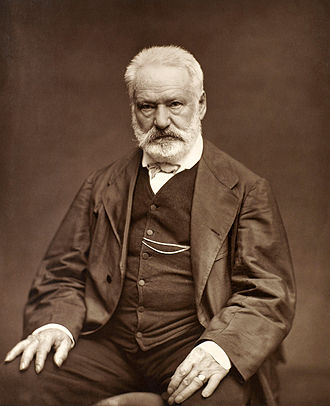
ヴィクトル・ユゴー(1802-1885)Wikipediaより
次の記事ではゾラはユゴーをどう見ていたのかということを紹介していきます。
世界文学史上の頂きに君臨し続けているユゴーの傑作『レ・ミゼラブル』。
現代でもミュージカルで大人気のこの作品ですが、ゾラならばこの作品について何と言うのでしょうか。
私はレミゼが大好きです。
でも、ゾラも大好きです。
ゾラの小説はとにかく面白いです。ゾラの連作シリーズ「ルーゴン・マッカール叢書」も全て読みました。
あわせて読みたい
『居酒屋』の衝撃!フランス人作家エミール・ゾラが面白すぎた件について
ゾラを知ることはそのままフランス社会を学ぶことになり、結果的にドストエフスキーのヨーロッパ観を知ることになると感じた私は、まずゾラの代表作『居酒屋』を読んでみることにしました。
そしてこの小説を読み始めて私はとてつもない衝撃を受けることになります。
ただ、ゾラは空想的、ファンタジー的な文学を嫌います。
自然主義文学は現実の人間世界を忠実に描くことをモットーとしています。
そうなると、レミゼは「リアルな世界」と言えるのか・・・これは何とも言えないところですよね。
実はユゴーとゾラは真逆の文学観を持つ存在なのです。
これは非常に興味深い対称です。
ユゴーもゾラも、どっちも大好きな私にとってこれはなかなかに難しい問題です。
「反対なものどちらも好き」と言えば一見矛盾しているようにも思えますが仕方ありません。ユゴーもゾラも、どちらもとにかく面白いのですから。
というわけで、次の記事ではゾラのユゴー批判を見ていきたいと思います。
ゾラはこの本においてユゴーに対する意見を述べています。これがまた頗るエッジの効いた評論になっています。
ゾラはユゴーの劇作品『リュイ・ブラース』を題材にユゴーに対して噛みつきます。
あわせて読みたい
ユゴーの劇作品『リュイ・ブラース』あらすじと感想~スペインを舞台にしたユゴーらしさ溢れる演劇
ユゴーは詩人であり、劇作家でもありました。
ユゴーの最も有名な小説『レ・ミゼラブル』はそうした詩人、劇作家としての技能もふんだんに取り入れられた作品です。ユゴーは舞台化されやすいような演出を作品の中にすでに盛り込んでいたのです。どうすれば演劇的に盛り上がるか、そしてそれをどう小説に盛り込めば効果的か、そうした側面からもユゴーは作品制作をしていたのです。
そうしたことを知る上でもユゴーの劇作品に触れるのは非常に興味深い体験となりました。
この評論が二人の文学スタイルを知る上で非常にわかりやすいものだったのでぜひ皆さんにご紹介したいと思います。これを読めばフランス文学とは何なのかということまで考えることができる非常に優れた評論です。
評論と言っても小難しい専門用語が飛び交うこともありません。そこはゾラです。ものすごくわかりやすく話してくれます。
ぜひ引き続きお付き合い頂けたらなと思います。
以上、「『〈ゾラ・セレクション〉第8巻 文学論集1865-1896』ゾラの文学観を知るならこの1冊!」でした。
Amazon商品ページはこちら↓
文学論集 (ゾラ・セレクション 8)
次の記事はこちら
あわせて読みたい
ゾラのユゴー批判~ユゴーの理想主義を断固否定するゾラの文学論とは
ユゴーとゾラはどちらもフランスを代表する作家です。この二人の特徴を知る上でもとてもわかりやすい評論がありますので、じっくりゾラの言葉を聴いていきましょう。
前の記事はこちら
あわせて読みたい
ユゴーの劇作品『リュイ・ブラース』あらすじと感想~スペインを舞台にしたユゴーらしさ溢れる演劇
ユゴーは詩人であり、劇作家でもありました。
ユゴーの最も有名な小説『レ・ミゼラブル』はそうした詩人、劇作家としての技能もふんだんに取り入れられた作品です。ユゴーは舞台化されやすいような演出を作品の中にすでに盛り込んでいたのです。どうすれば演劇的に盛り上がるか、そしてそれをどう小説に盛り込めば効果的か、そうした側面からもユゴーは作品制作をしていたのです。
そうしたことを知る上でもユゴーの劇作品に触れるのは非常に興味深い体験となりました。
関連記事
あわせて読みたい
ユゴーを批判したゾラが世紀の傑作『レ・ミゼラブル』をどう見るだろうか考えてみた
今回の記事ではユゴーの偉大なる作品『レ・ミゼラブル』に対し、ゾラはどんなことを言うのだろうかということを考えていきたいと思います。
あわせて読みたい
『レ・ミゼラブル』おすすめ解説本一覧~レミゼをもっと楽しみたい方へ
原作もミュージカルもとにかく面白い!そして知れば知るほどレミゼを好きになっていく。それを感じた日々でした。
ここで紹介した本はどれもレミゼファンにおすすめしたい素晴らしい参考書です。
あわせて読みたい
フランス革命やナポレオンを学ぶのにおすすめの参考書一覧~レミゼの時代背景やフランス史を知るためにも
『レ・ミゼラブル』の世界は1789年のフランス革命やその後のナポレオン時代と直結しています。これらの歴史を知った上でレミゼを観ると、もっともっと物語を楽しめること間違いなしです。
あわせて読みたい
『レ・ミゼラブル』解説記事一覧~キャラクターや時代背景などレミゼをもっと知りたい方へおすすめ!
この記事ではこれまで紹介してきた「レミゼをもっと楽しむためのお役立ち記事」をまとめています。
私はレミゼが大好きです。ぜひその素晴らしさが広まることを願っています。
あわせて読みたい
ゾラはどれほどすごい作家だったのか~フランスでの発行部数から見るゾラの人気ぶり
ゾラは日本ではあまり知名度が高くはありませんが、フランスでは最も愛されている作家の一人です。
日本にいるとその偉大さは伝わりにくいですが、ちょうど私が読んだ『獣人』藤原書店、寺田幸德訳の訳者解説にフランスでのゾラ作品の発行部数が載っていたので、この記事ではその数字を参考にいかにゾラがフランスで人気だったのかを見ていきます。
あわせて読みたい
日本ではなぜゾラはマイナーで、ドストエフスキーは人気なのか―ゾラへの誤解
前回の記事ではフランスでの発行部数からゾラの人気ぶりを見ていきました。
その圧倒的な売れ行きからわかるように、ゾラはフランスを代表する作家です。
ですが日本で親しまれている大作家が数多くいる中で、ゾラは日本では異様なほど影が薄い存在となっています。
なぜゾラはこんなにも知名度が低い作家となってしまったのでしょうか。
今回の記事では日本でゾラがマイナーとなってしまった理由と、それと比較するためにドストエフスキーがなぜ日本で絶大な人気を誇るのかを考えていきたいと思います。
あわせて読みたい
フランス人作家エミール・ゾラとドストエフスキー ゾラを知ればドストエフスキーも知れる!
フランス第二帝政期は私たちの生活と直結する非常に重要な時代です。
そしてドストエフスキーはそのようなフランスに対して、色々と物申していたのでありました。
となるとやはりこの時代のフランスの社会情勢、思想、文化を知ることはドストエフスキーのことをより深く知るためにも非常に重要であると思いました。
第二帝政期のフランスをさらに深く知るには何を読めばいいだろうか…
そう考えていた時に私が出会ったのがフランスの偉大なる作家エミール・ゾラだったのです。
あわせて読みたい
僧侶が選ぶ!エミール・ゾラおすすめ作品7選!煩悩満載の刺激的な人間ドラマをあなたに
世の中の仕組みを知るにはゾラの作品は最高の教科書です。
この社会はどうやって成り立っているのか。人間はなぜ争うのか。人間はなぜ欲望に抗えないのか。他人の欲望をうまく利用する人間はどんな手を使うのかなどなど、挙げようと思えばきりがないほど、ゾラはたくさんのことを教えてくれます。
そして何より、とにかく面白い!私はこれまでたくさんの作家の作品を読んできましたが、ゾラはその中でも特におすすめしたい作家です!
あわせて読みたい
19世紀後半のフランス社会と文化を知るならゾラがおすすめ!エミール・ゾラ「ルーゴン・マッカール叢...
前回の記事「エミール・ゾラが想像をはるかに超えて面白かった件について―『居酒屋』の衝撃」ではエミール・ゾラの「ルーゴン・マッカール叢書」なるものがフランス第二帝政のことを学ぶにはもってこいであり、ドストエフスキーを知るためにも大きな意味があるのではないかということをお話ししました。
この記事ではその「ルーゴン・マッカール叢書」とは一体何なのかということをざっくりとお話ししていきます。
あわせて読みたい
ゾラの代表作『居酒屋』あらすじと感想~パリの労働者と酒、暴力、貧困、堕落の必然的地獄道。
『居酒屋』は私がゾラにはまるきっかけとなった作品でした。
ゾラの『居酒屋』はフランス文学界にセンセーションを起こし、この作品がきっかけでゾラは作家として確固たる地位を確立するのでありました。
ゾラ入門におすすめの作品です!
あわせて読みたい
ゾラの代表作『ナナ』あらすじと感想~舞台女優の華やかな世界の裏側と上流階級の実態を暴露!
ゾラの代表作『ナナ』。フランス帝政の腐敗ぶり、当時の演劇界やメディア業界の舞台裏、娼婦たちの生活など華やかで淫蕩に満ちた世界をゾラはこの小説で描いています。
欲望を「食べ物」に絶妙に象徴して描いた作品が『パリの胃袋』であるとするならば、『ナナ』はど直球で性的な欲望を描いた作品と言うことができるでしょう。
あわせて読みたい
ゾラ『ジェルミナール』あらすじと感想~炭鉱を舞台にしたストライキと労働者の悲劇 ゾラの描く蟹工船
『ジェルミナール』では虐げられる労働者と、得体の知れない株式支配の実態、そして暴走していく社会主義思想の成れの果てが描かれています。
社会主義思想と聞くとややこしそうな感じはしますが、この作品は哲学書でも専門書でもありません。ゾラは人々の物語を通してその実際の内容を語るので非常にわかりやすく社会主義思想をストーリーに織り込んでいます。
あわせて読みたい
エミール・ゾラ『パリ』あらすじと感想~ルーゴンマッカールからその先へ!これぞゾラ!宗教との真剣対...
『パリ』は「ルーゴン・マッカール叢書」を書き上げたゾラの集大成とも言える作品となっています。とにかくゾラらしさ満載で、「THE ゾライズム」と言いたくなるような作品です。
私は今の日本にこそ、ゾラが必要だと感じています。
ゾラほど冷静に社会の仕組みを分析し、正義や真実を求めた作家はいないのではないでしょうか。
『パリ』は最高の作品です。ゾラのことがもっと好きになりました。ぜひ多くの方に広まることを願っています。
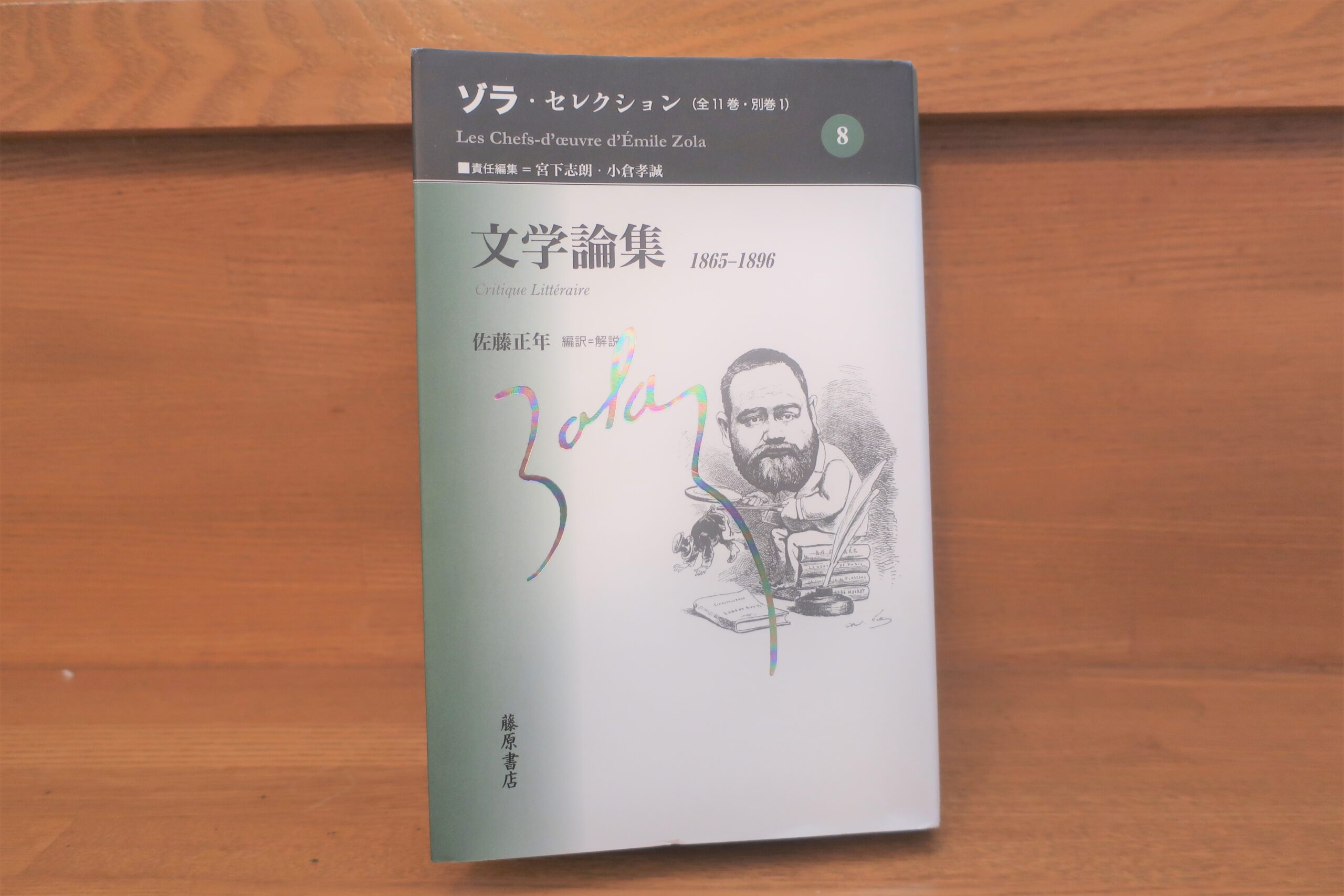

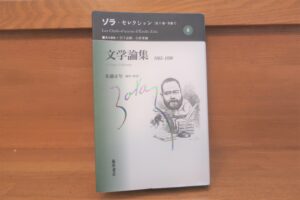

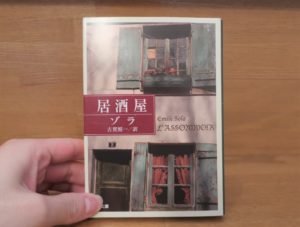
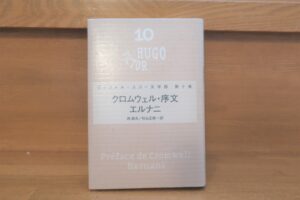
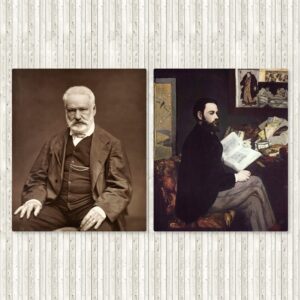


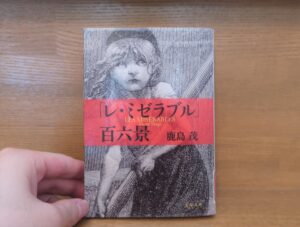
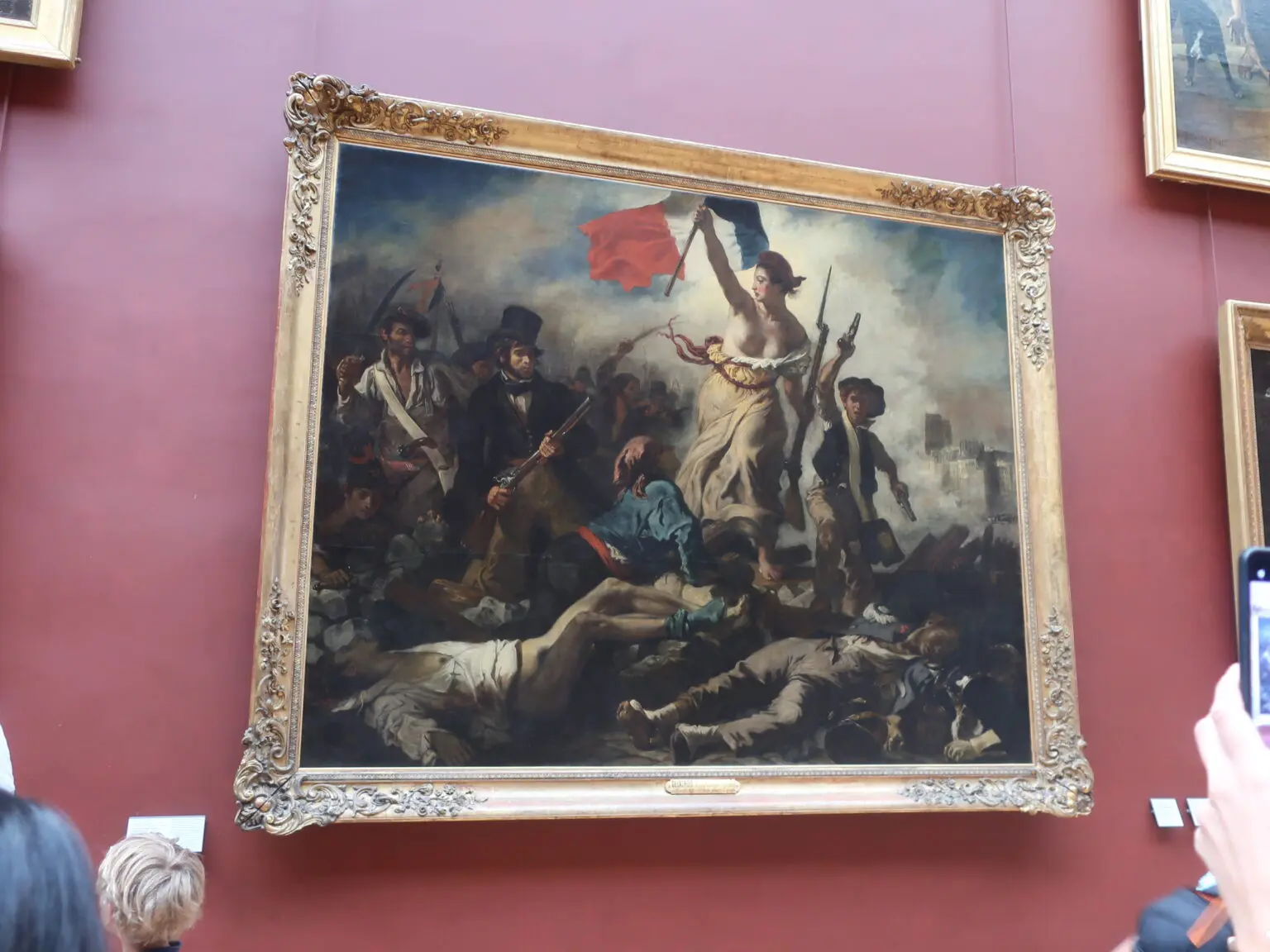
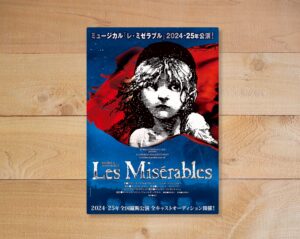

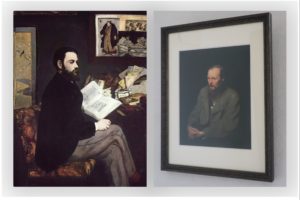

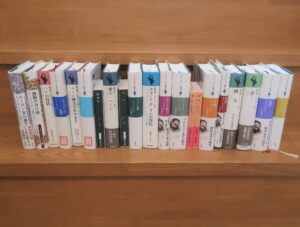


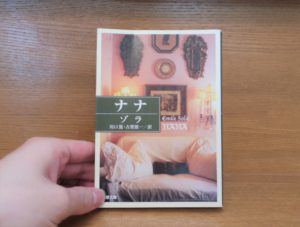
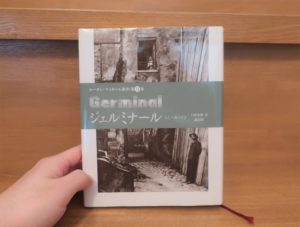
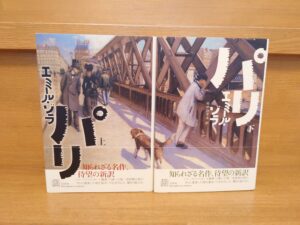

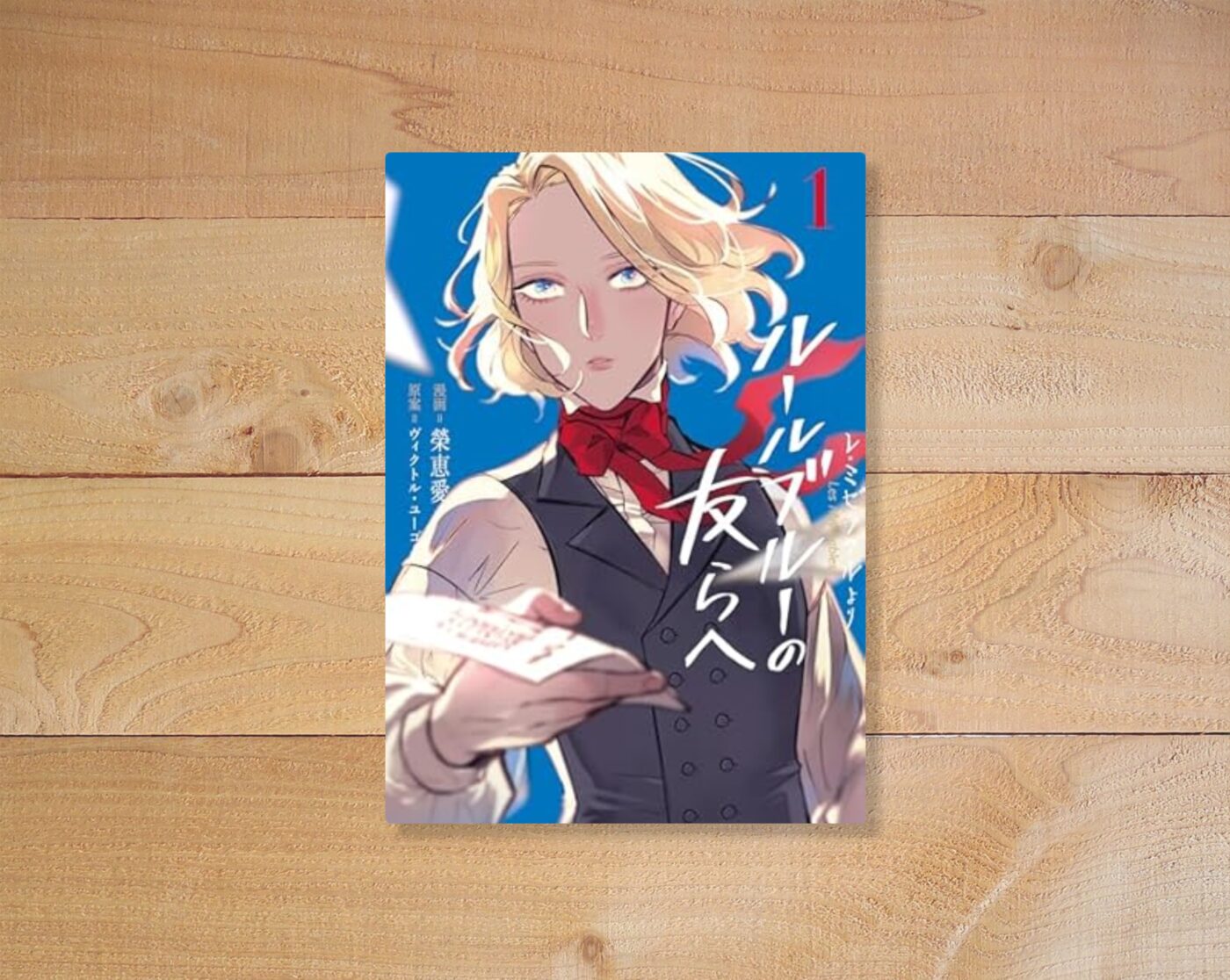
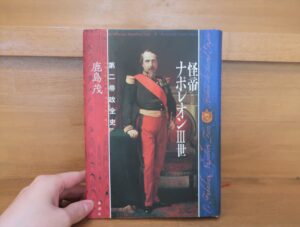
コメント